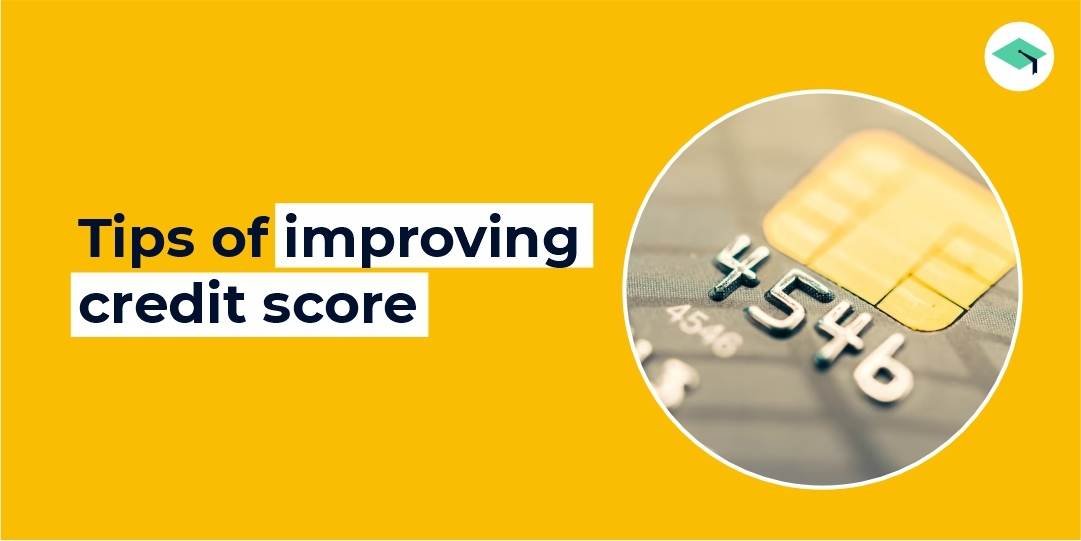A student loan is likely the first step many students take towards financial independence, and just as with other loan applications, lenders will look into your credit score when considering your application for an education loan.
To determine a student’s capacity to repay an education loan, lenders investigate their creditworthiness. In this blog, we will discuss the impact of your credit score on your ability to get approved for an abroad education loan and tips for improving your credit score.
Importance of credit score for abroad education loan
When you apply for an education loan, a lender will check your credit score; this goes for both co-borrowers and students. When applying for an education loan, a student’s credit score may be crucial, but if they don’t have one, the lender will base their loan conditions on the credit ratings of their co-borrowers.
A student’s chances of getting financial help might be improved by meeting the lender’s other qualifying standards and having a high credit score:
- a lower interest rate
- a lender approval that comes more quickly
- a larger loan sum for schooling
- an increased credit limit
- a lengthier term
How is the credit score calculated?
Every time a person contacts a bank or other financial institution for a loan of any type, the bank or financial institution will request the CIR (Credit Information Report), which is the person’s unique credit history from credit.
Their credit history determines their credit score, which ranges from 300 (Worst) to 900. (Best). It is unimportant to be concerned if you haven’t applied for any loans yet because your credit score will always be negative or zero.

The credit score is primarily based on four factors:
- Repayment history – One’s regularity, consistency with prior EMI payments, and other factors.
- A mix of loans – Several loan kinds (secured and unsecured) they have previously obtained.
- Credit limit – use of the credit card’s or any other credit line’s credit limit.
- Multiple loans at one time – the frequency with which they’ve requested or applied for loans recently.

How to compare education loans?
How your credit score impacts your student loan?
If you’re wondering if taking out a student loan would affect your credit score, the answer is yes. Education loans, like other loans, affect your credit score if they are returned on time; if they are paid late, your score may be negatively impacted.
The bulk of student loans is repaid in installments over a defined period of time. You begin to establish a history as a result of the lender reporting this to credit reporting companies.
When you pay your bills on time, you’ll begin establishing a solid track record for handling credit. Nonetheless, the following credit score levels are suggested for students wishing to get an educational loan to study abroad:
| Range | Loan Probability |
| 300-599 | If your credit rating is at this level, you should carefully review your financial records and concentrate on any pressing problems that could be the root of your low rating. Your chances of being approved for an education loan are decreased since financial institutions frequently see credit scores of less than 600 as being exceptionally bad. |
| 600-749 | Those with credit scores in this range are still qualified for student loans. Yet, the majority of banks and NBFCs are quite picky about loan applicants achieving the minimal credit score standards for education loans. |
| 750 and above | A credit score of 750 or above is required to be eligible for an education loan. This credit score may be used by lenders to determine the financial dependability of co-applicants and individual applicants. |
Tips for improving credit score
The following are possible causes of your low credit score as well as suggestions for how to raise it:
- Overuse of credit limit: Using your whole credit limit is a sign that you lack self-control when it comes to spending. Try to keep your balance between 30 and 50 percent of your total credit limit. You’ll use credit less as a result, improving your credit score.
- Late and failed payments: Your credit score declines if you often skip or postpone loans or credit installments. Set up reminders to pay back all borrowed money on time; this will help you build credit and get better loan conditions in the future.
- Rejected loan requests: Wait before submitting an application for a new loan if your previous one was rejected. When your credit score declines with each loan denial, there will be a higher chance of a fresh loan denial in such situations. Improve your credit score as a top priority to be eligible for loans. You can then file a loan application with better conditions after doing this.
Be aware that the procedure can be lengthy, and loan approval can be quite difficult if you have low credit, but you may still be able to receive any other loan because the banks will keep the collateral as security until you have paid the whole loan amount plus interest.
Also, it’s possible that you’ll only be given unfavorable loan terms and circumstances. Some of them might have greater interest rates or longer payback schedules.
